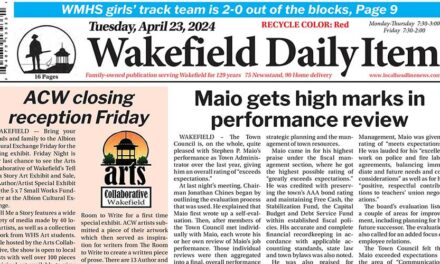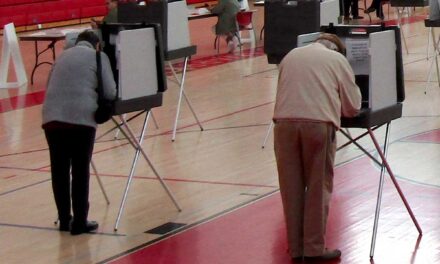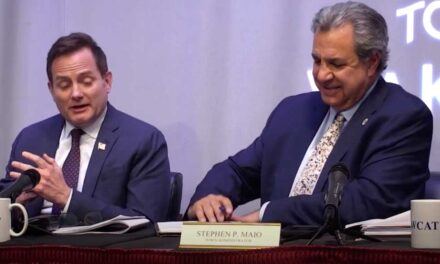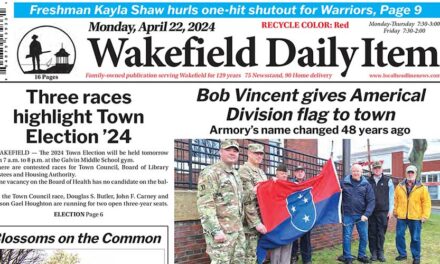Published in the August 8, 2016 edition.
LYNNFIELD — A New Hampshire man met with officials from Lynnfield and Wakefield last Thursday about his plan to open a medical marijuana dispensary in part of the old Crystal Motor Express facility on Kimball Lane.
Robert C. Carr Jr. of Manchester, president of Nature’s Remedy of Mass., Inc., presented his proposal in an exploratory meeting with Wakefield Police Chief Rick Smith, Wakefield Town Administrator Stephen P. Maio and their respective Lynnfield counterparts David Breen and James Boudreau.
Smith said Friday that Carr plans to run a medical marijuana dispensary in one end of the old Crystal trucking building, needing roughly 2,500 square feet. He would sublet the rest of the facility. The so-called “grow operation” — where the plants are cared for, harvested, packaged and shipped — will be someplace else, possibly in the central part of the state.
Carr has already been turned down for a dispensary in Westford. According to Smith, Carr is in the process of applying for a medical marijuana dispensary in Millbury and for a grow operation near that community.
Currently, there are nearly 200 applications for medical marijuana dispensary licenses across the state.
Smith said Wakefield’s concern include traffic, noise, loitering and whether those with medical marijuana cards will be able to ingest marijuana at the Kimball Lane site and then drive away, impaired.
Additionally, Smith said he asked Carr questions about the distribution and packaging of the marijuana and how it would be made childproof. Also, he wanted to know how it would be transported from the grow site and whether it would be unloaded in a bay or out in the open.
Carr will still need a special permit from the Lynnfield Planning Board. It is expected that he will go before the selectmen in September with his pitch. He is seeking a letter of non-opposition from the town and if Carr gets one, he then moves on to the Planning Board.
Smith said he recently toured a medical marijuana dispensary and grow facility in Colorado.
“It was quite an operation,” he explained. “I was blown away with what’s involved in it. … You need to have a huge infusion of cash to get something like this going.”
Wakefield’s top law enforcer also said the worlds of medical marijuana and recreational marijuana use really don’t have much concern with keeping the people who ingest it safe.
“This is all about cash. The whole industry is fiscally driven,” Smith said.
According to amendments to the Lynnfield Zoning Bylaws passed by participants of the April 2014 Town Meeting, medical marijuana dispensaries are only allowed in the town’s commercial district, in which Kimball Lane falls.
“A registered marijuana dispensary shall not be located within 1,000 feet of any school, church, licensed child care center, playground, place of worship or any other registered marijuana dispensary.
“No registered marijuana dispensary shall be located within the same premises as any medical doctor’s office or the offices of any other professional practitioner authorized to prescribe the use of medical marijuana.
“Any and all cultivation, production, storage, display, sales or other distribution of marijuana shall be located so as to occur only within the restricted area of a registered marijuana dispensary and shall not be visible from the exterior of the business.”
Also in the Lynnfield Zoning Bylaws is this: “The Planning Board may issue a special permit for a registered marijuana dispensary if the information available to the Planning Board verifies that the applicant has submitted a full and complete application, has planned improvements to the business location consistent with the application, is prepared to operate the business as set forth in the application and in accordance with town bylaws and has submitted the required fees. The Planning Board shall deny any application for a special permit where the applicant does not meet the requirements of town bylaws or any other applicable law, rule or regulation or in the event that such application contains any false or incorrect information. The Planning Board may impose such conditions as it deems appropriate for the protection of public health, safety and welfare in any district permitting such use. …”




